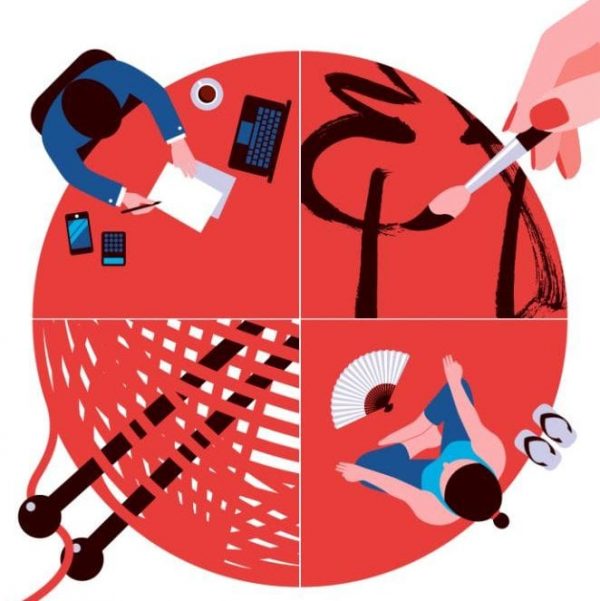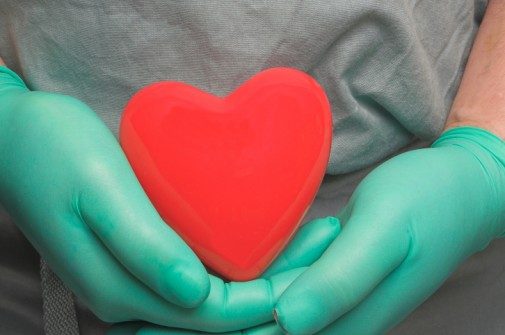It was a hideous, bilious, stinking hangover. I lay on the sofa like a filthy sock on a pile of laundry, groaning just loudly enough for my housemates to hear. My brain felt like it’d been riding pillion in the Dakar Rally on a motorbike with no suspension; my stomach felt like a spin-dryer trying to slosh its way around Lady Gaga’s meat dress.
A fine Saturday morning. Hangovers are physical, this time brutally so, but sometimes the booze percolates deeper. As I mewled for water, the hangover reached an insidious existential stage, evolving like a common cold into a superbug.
Why did I stay out last night? Was there any way out of this slough? And did my life, I thought, as I contemplated the unassailable distance separating me from the television remote, really have meaning?
I needed ibuprofen (now). I needed a fry-up (soon). And I needed an ikigai (what?).
Ikigai. Ick-ee-guy. It’s a word you’ll be hearing quite often come autumn. Like “hygge” and “lagom” before it, “ikigai” is an un-British lifestyle concept that has been cannily co-opted by the publishing industry. It’s Japanese, and it means something like “purpose in life”, or “thing that you live for”, or “thing that gets you out of bed in the morning”.
I can hear the sneering already. “What gets me out of bed in the morning?” says the kind of person who reserves deep scepticism for green tea. “My alarm clock, obviously.”
Funny you should say that, straw man, because having an ikigai seems to be a sound guarantor of a good night’s sleep. On Monday, we learnt from the neurology department at Northwestern University, Illinois, that people who feel they have a purpose are much more likely than others – i.e. the rest of us chumps – to have good-quality sleep.
Nothing some lavender spray couldn’t achieve, right? Maybe. But will that stave off the Grim Reaper? I ask because an extended lifespan, according to the long-life expert Dan Buettner, is what awaits havers-of-ikigai. In my hung-over stupor, I watched him give a TED talk about the Japanese archipelago of Okinawa, which is known primarily for its preposterously high number of centenarians.
“They live about seven good years longer than the average American,” he said. You could take this as an excoriation of the land of corn dogs and stuffed crusts, or you could take it as an endorsement of Okinawan lifestyle conventions. As I weighed up whether to order a pizza, I watched Buettner, a tanned, athletic-looking fiftysomething, stroll confidently about the stage as he explained how Okinawans live so long.
They have a “moai”, he said: a small group of friends, six or so, who throughout life support each other as a family would. They live by the dictum of “hara hachi bu”, which entails eating only until you are 80 per cent full. They live off “a plant-based diet, full of vegetables with lots of colour in them.”
And they all have an ikigai. “In the Okinawan language,” said Dan, “there is not even a word for retirement. Instead, there is one word that imbues your entire life, and that word is ‘ikigai’. And, roughly translated, it means ‘the reason for which you get up in the morning.’”
He talked of a 102-year-old karate master who still practised, a 100-year-old fisherman who loved to bring the catch to his family, and a 102-year-old who, asked what her ikigai was, said that holding her great-great-great-granddaughter, a century her junior, felt like “leaping into heaven.”
Even in the West, retirement has been associated with earlier death, and that’s including adjustments for people forced to retire early by ill health. Jobs that aren’t overly demanding, it seems, lengthen life, for reasons which aren’t yet clear but probably include social and economic benefits.
But enough about work. Enough about Okinawa, and enough about Dan Buettner. I want a slice of that pie, I thought, as I added some tokenistic vegetables to my pizza order. I don’t want to waste my life hung over; I fancy living forever instead, or at least to 100. I want it. Can I have it? Gimme an ikigai!
And so began my week-long quest to find one. “What can I do to find my ikigai?” I demanded of Neil Pasricha. He’s a Canadian entrepreneur and motivational speaker whose new book, The Happiness Equation, promises to tell you how to “want nothing and do anything in order to have everything”. Along the way, he discusses the importance of having an ikigai and suggests how to find one.
A kind and gentle man who is not afraid to use a smiley in an email, Neil suggested I try his Saturday Morning Test. “What do you do on a Saturday morning when you have nothing to do?” he asks in his book.
I couldn’t bring myself to tell him that I’d spent my most recent Saturday morning thinking that being reborn as a battery-farmed chicken would be better than being this hung over. Basically, I’d spent that Saturday morning just wanting to feel better. Maybe… maybe feeling good was my ikigai. If I just did more stuff to feel good, I calculated, if I really, really cared about feeling good, I would not only live to 100, but also, by definition, have a great time along the way.
Neil’s book is fairly professionally minded, and I sensed that this was not the sort of ikigai that he would advocate. But it made perfect sense. By perpetrating a hedonistic hack of the ikigai concept, I wouldn’t have to bother with karate or fishing or familyor any of that guff. No middlemen. No mediation. Just unadulterated ikigai, fresh from the source, splashing into my greedy open mouth.
The Okinawans seemed to be enjoying themselves, so I decided to abruptly adopt key elements of their lifestyle. I embarked on the most virtuous trolley dash of my life, wowing my fellow shoppers with my purchase of aspirational vegetables such as pak choi and asparagus. Next, the Japan Centre, a specialist Japanese food shop in central London, where I bought miso soup, tofu, sesame oil, mushroom stock, and three different kinds of seaweed.
Some rice and shiitake mushrooms later, I had everything I needed to make goya champuru, a popular and healthy Okinawan stir fry. Oh – there was one more thing, actually: bitter gourd, also known as bitter melon, a spiny sort of cucumber thing that’s supposed to be good for diabetes. For some reason, nobody seemed to stock it, so I had to find it online and get it delivered to the house. I thought nothing of bitter gourd’s strange absence from supermarket shelves, and roped my two housemates into my bid for a long and happy life. All the unwitting patsies would have to do was enjoy the goya champuru I was about to make, and then I’d be away, secure in my virtuous-living ikigai and ready for a life of blissful superannuation.
They guzzled down the miso soup all right. A good start. But then – “This is foul!” said Romilly. She had taken her first spoonful of bitter gourd and was hardly able to finish it. Augustine, too, was struggling. Worried, I tried it myself. Disgusting! Foul! Horrid! “Bitter” was a sick understatement. Shakespeare’s Iago could have taken bitterness lessons from this appalling vegetable. All too late, I realised why I couldn’t find it in a supermarket.












